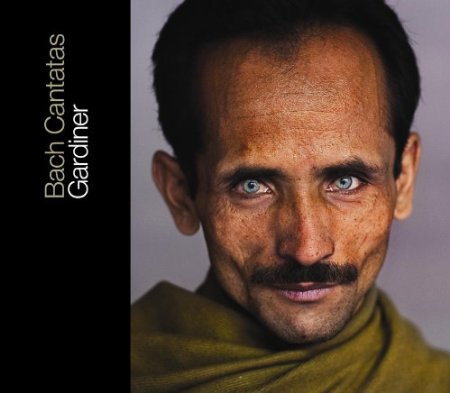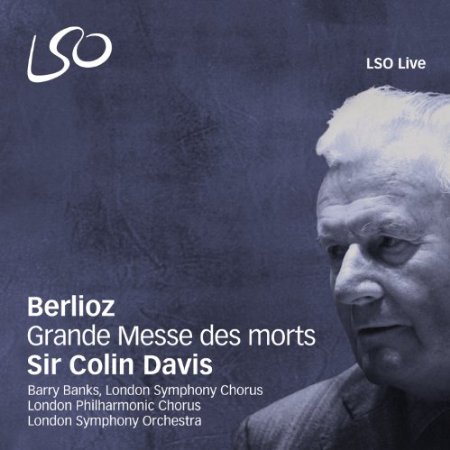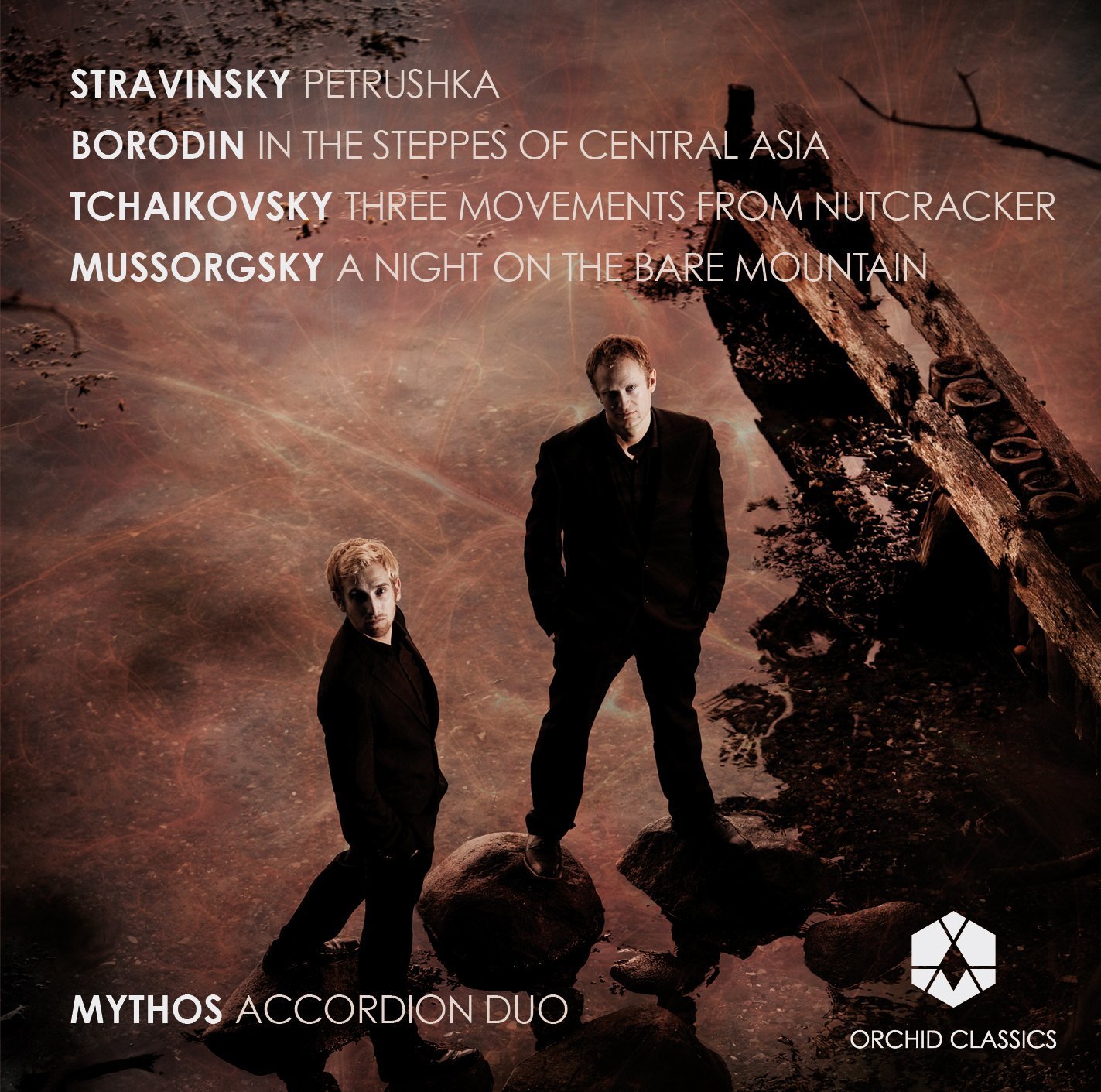Classical CDs Weekly: Bach, Berlioz, Mythos Accordion Duo | reviews, news & interviews
Classical CDs Weekly: Bach, Berlioz, Mythos Accordion Duo
Classical CDs Weekly: Bach, Berlioz, Mythos Accordion Duo
Choral spendour, both modestly proportioned and on a vast scale. Along with the best accordion duo on the planet


The final volume in John Eliot Gardiner’s mammoth Bach Cantata sequence is one of the very best. Gardiner’s recent BBC2 documentary placed rightful emphasis on Bach’s humanity, his normality. The devout will find plenty of weighty religiosity in the four cantatas assembled here, but they’re also full of zest and vigour. Sample the opening chorus of Gott fähret auf mit Jauschen and smile at Bach’s unerring ability to compose music which exactly reflects the texts he sets. “God is gone up with a shout”, sing the Monteverdi Choir. The first minute is a little staid, before the music suddenly lurches forward into an exuberant, trumpet-led dance. Bass Dietrich Henschel’s solos are magnificent, and Gardiner’s sprightly direction allows him to soar. These cantatas do peculiar things with one’s sense of time; each one packs an inordinate amount of musical and philosophical content into a compact space.
Marvel at the opening of Lobett Gott in seinen Reichen, a brassy eruption of joy complemented in sublime fashion by a closing chorus which carries an emotional weight wholly out of proportion to its four-minute duration. This disc is full of such small miracles. The performances are incredibly assured, with tight, rich choral singing and orchestral playing full of felicitous detail. Several wonderful oboe da caccia solos stand out, and all is contained within the not-too-resonant acoustic of St Giles' Cripplegate where it was recorded in May 2012. These cantatas were to have been recorded in Salisbury in 2000, but "noise issues" intervened - this disc was made possible by 2500 volunteer donors offering £20 each to fund the concerts.

This is superb stuff – a wondrous, fitting swansong from one of the most consistent artistic partnerships of the last 20 years. Berlioz’s Grande Messe des morts has to be one of the least depressing of Requiem settings. This was a composer incapable of writing maudlin music, and this work teems with subversive quirkiness. Berlioz’s instrumentation is suitably lavish at key moments, and the futuristic sonic eruptions in the Dies irae, with extra brass groups placed at the four corners of the performance space, sound suitably apocalyptic, the resonance of the St Paul’s acoustic magnificently tamed by producer James Mallinson. This pair of CDs really needs to be enjoyed through a set of decent speakers; listening through crap headphones would be the sonic equivalent of sipping an expensive single malt from a polystyrene cup.
Sir Colin Davis’s grip on the score is as sure as it ever was, the massed choral forces coordinated with unerring precision. He’s always had an ear for Berlioz’s quirky sense of orchestral colour. Soft cymbal strokes punctuate each phrase of the Sanctus with unearthly delicacy, and those spooky trombone and flute notes in the Hostias are bone-chilling. Tenor Barry Banks is excellent, his repeated cries in the ninth movement nicely set against the soft choral backing. This is an essential purchase – a first-rate reading of a religious work that combines both entertainment value and spiritual uplift.

Bjarke Mogensen and Rasmus Scjæff Kjøller’s duo take their name from the instruments they use – swanky Russian-made Pigini Mythos bayans, top-range members of the accordion family. As the sleeve notes point out, virtuosic players can perform the most extravagant of scores without compromising the music’s essence. A few seconds’ exposure to Mythos’s version of Stravinsky’s Petrushka will have most listeners grinning from ear to ear. The rhythmic punch, supernatural coordination and dynamic control on display are startling enough, but it’s the rasping, transfiguring effect of the bayan sound that’s key. This score sounds as if it could have been written for these players; both orchestral versions sound pale in comparism. Stravinsky’s cleverly filched folk and popular tunes have never sounded so authentic; it’s as if you’re witnessing the action whilst knocking back vodka in a seedy bar. The composer would have loved it.
The couplings add to the appeal – a sensitive transcription of Borodin’s In the Steppes of Central Asia and three witty numbers from Tchaikovsky’s The Nutcracker. Better still is a rasping, sweaty assault upon Mussorgsky’s Night on the Bare Mountain in the Rimsky Korsakov arrangement. Get past the entertaining fireworks to reach a slow, tacked-on epilogue that rarely sounds this convincing. This is a magical, life-enhancing disc – one that’s already pencilled in near the top of my provisional end-of-year Best of 2013 list. Go out now and buy multiple copies - it's that good.
- Watch Mythos play Stravinsky's Shrovetide Fair:
Explore topics
Share this article
Add comment
The future of Arts Journalism
You can stop theartsdesk.com closing!
We urgently need financing to survive. Our fundraising drive has thus far raised £49,000 but we need to reach £100,000 or we will be forced to close. Please contribute here: https://gofund.me/c3f6033d
And if you can forward this information to anyone who might assist, we’d be grateful.

Subscribe to theartsdesk.com
Thank you for continuing to read our work on theartsdesk.com. For unlimited access to every article in its entirety, including our archive of more than 15,000 pieces, we're asking for £5 per month or £40 per year. We feel it's a very good deal, and hope you do too.
To take a subscription now simply click here.
And if you're looking for that extra gift for a friend or family member, why not treat them to a theartsdesk.com gift subscription?
more Classical music
 BBC Proms: Royal Concertgebouw Orchestra, Mäkelä review - defiantly introverted Mahler 5 gives food for thought
Chief Conductor in Waiting has supple, nuanced chemistry with a great orchestra
BBC Proms: Royal Concertgebouw Orchestra, Mäkelä review - defiantly introverted Mahler 5 gives food for thought
Chief Conductor in Waiting has supple, nuanced chemistry with a great orchestra
 Dunedin Consort, Butt / D’Angelo, Muñoz, Edinburgh International Festival 2025 review - tedious Handel, directionless song recital
Ho-hum 'comic' cantata, and a song recital needing more than a beautiful voice
Dunedin Consort, Butt / D’Angelo, Muñoz, Edinburgh International Festival 2025 review - tedious Handel, directionless song recital
Ho-hum 'comic' cantata, and a song recital needing more than a beautiful voice
 Classical CDs: Dungeons, microtones and psychic distress
This year's big anniversary celebrated with a pair of boxes, plus clarinets, pianos and sacred music
Classical CDs: Dungeons, microtones and psychic distress
This year's big anniversary celebrated with a pair of boxes, plus clarinets, pianos and sacred music
 BBC Proms: Liu, Philharmonia, Rouvali review - fine-tuned Tchaikovsky epic
Sounds perfectly finessed in a colourful cornucopia
BBC Proms: Liu, Philharmonia, Rouvali review - fine-tuned Tchaikovsky epic
Sounds perfectly finessed in a colourful cornucopia
 BBC Proms: Suor Angelica, LSO, Pappano review - earthly passion, heavenly grief
A Sister to remember blesses Puccini's convent tragedy
BBC Proms: Suor Angelica, LSO, Pappano review - earthly passion, heavenly grief
A Sister to remember blesses Puccini's convent tragedy
 BBC Proms: A Mass of Life, BBCSO, Elder review - a subtle guide to Delius's Nietzschean masterpiece
Mark Elder held back from blasting the audience with a wall of sound
BBC Proms: A Mass of Life, BBCSO, Elder review - a subtle guide to Delius's Nietzschean masterpiece
Mark Elder held back from blasting the audience with a wall of sound
 BBC Proms: Le Concert Spirituel, Niquet review - super-sized polyphonic rarities
Monumental works don't quite make for monumental sounds in the Royal Albert Hall
BBC Proms: Le Concert Spirituel, Niquet review - super-sized polyphonic rarities
Monumental works don't quite make for monumental sounds in the Royal Albert Hall
 Frang, Romaniw, Liverman, LSO, Pappano, Edinburgh International Festival 2025 review - sunlight, salt spray, Sea Symphony
Full force of the midday sea in the Usher Hall, thanks to the best captain at the helm
Frang, Romaniw, Liverman, LSO, Pappano, Edinburgh International Festival 2025 review - sunlight, salt spray, Sea Symphony
Full force of the midday sea in the Usher Hall, thanks to the best captain at the helm
 Elschenbroich, Grynyuk / Fibonacci Quartet, Edinburgh International Festival 2025 review - mahogany Brahms and explosive Janáček
String partnerships demonstrate brilliant listening as well as first rate playing
Elschenbroich, Grynyuk / Fibonacci Quartet, Edinburgh International Festival 2025 review - mahogany Brahms and explosive Janáček
String partnerships demonstrate brilliant listening as well as first rate playing
 BBC Proms: Akhmetshina, LPO, Gardner review - liquid luxuries
First-class service on an ocean-going programme
BBC Proms: Akhmetshina, LPO, Gardner review - liquid luxuries
First-class service on an ocean-going programme
 Budapest Festival Orchestra, Iván Fischer, Edinburgh International Festival 2025 review - mania and menuets
The Hungarians bring dance music to Edinburgh, but Fischer’s pastiche falls flat
Budapest Festival Orchestra, Iván Fischer, Edinburgh International Festival 2025 review - mania and menuets
The Hungarians bring dance music to Edinburgh, but Fischer’s pastiche falls flat

Comments
Hear, hear! Mythos Duo's
Hear, hear! Mythos Duo's Petrushka already on my provisional best of year list too. Nothing's going to displace it.
I've delightedly bought both